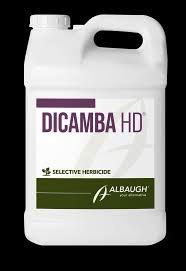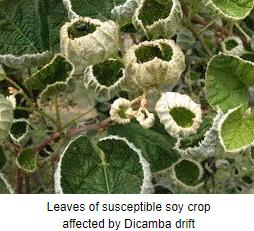
The U.S. District Court of Arizona has overturned the 2020 re-approval of Dicamba by the Environmental Protection Agency. Originally licensed in 2017, the product has been responsible for damage to a wide range of crops including soybeans on fields close to treated fields. Additional restrictions on application and reformulation to avoid drift were generally unsuccessful in preventing collateral destruction of vulnerable non-GM crops.
The Court in Arizona was critical of the EPA in allowing the 2020 re-registration citing the failure of the Agency to take into account data provided by independent researchers who documented the problem of drift. EPA did not ascertain that reformulation was ineffective and failed to conduct an appropriate risk analysis as required.

The situation was characterized by Nathan Donley, Environmental Health Science Director at the Center for Biologic Diversity who stated, “Endangered butterflies and bee populations will keep tanking if the EPA keeps twisting itself into a pretzel to approve this product just to appease the pesticide industry.”
The Court also took into account the fact that numerous stakeholders including farmers were deprived of the opportunity to comment on their financial losses attributed to damage caused by inadvertent exposure of crops to Dicamba. The USDA estimated that 15 million acres of susceptible soybeans among the acreage of other fruit, grain and vegetable crops were seriously damaged by the herbicide.

In response to the Court ruling the American Soybean Association (ASA) addressed a letter to EPA Administrator Michael Regan requesting that he appeal the decision. It is estimated that 37 million acres will be planted to soybeans compatible with Dicamba in 2024 representing 45 percent of the crop. Dicamba is an effective herbicide used to control weeds including palmer amaranth that may be resistant to glyphosate. The ASA also is requesting an exemption to apply existing stocks of “low volatility” formulations of Dicamba